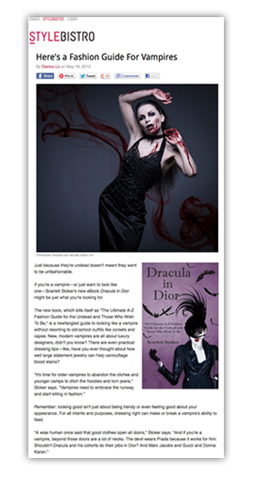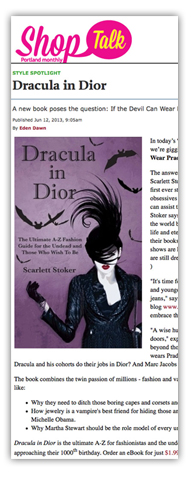sharon krum
writer
The Thing About Jane Spring
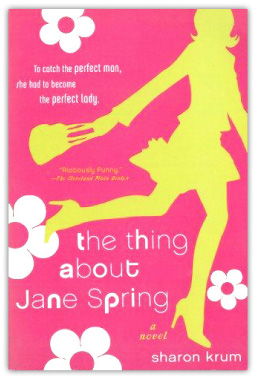
Meet Jane Spring In fact you have probably met her already. That woman who eats the world for breakfast? Yep, that’s her. This quality has made her a very successful prosecutor in the New York District Attorneys office. However she also eats men for breakfast, which has left her with a big problem. Where does she find love? Jane finds the answer watching a series of Doris Day classic movies, where sweet, adorable, Doris always gets her guy. So, what would happen if Jane imitated Doris Day head to toe? Can love really happen just like a Hollywood movie if you step into one?
REVIEWS Mouse over for full review
- Detroit Free Press
Que sera, so read; August pick is a stiletto-sharp chick-lit tale about channeling Doris Day
By Marta Salij Free Press Columnist
I like my August books quick, light -- and sly.
And that is why "The Thing About Jane Spring," by Sharon Krum, is the August pick of the Detroit Free Press Book Club. The quick and light parts you'll probably figure out from the cover alone. Yep, this looks like a chick-lit book, what with the amusingly retro drawing of a stiletto-clad foot stepping out from behind a door.
And yep, it looks pretty light, what with the jacket blurb that drops "Sex and the City" and "Pillow Talk" into the same sentence. Pass me a Pink Lady and the sunscreen: I've got some froth to read. But what intrigues me about "Jane Spring," besides the fact that Krum is a better and smoother writer than most who labor in the land of novels-about-shopping, is that the book isn't just quick and light. It's a devilish commentary on the state of women and men and what we think we know about each other.
And all that commentary flies a little under the radar. As I said: Sly.
Jane Spring is a 34-year-old assistant district attorney in Manhattan. She's leggy and blond. She's smart and tough. So far, so expected.
But for a girl so smart, she's kind of dumb about men. (That's expected in these books, too.) What makes Jane an entertaining character is that she's so very, very dumb. Here she is on a first date, clad in her shapeless black pantsuit (the better to litigate with, my dear), sans makeup, as the entree is delivered: "Casually slipping her right hand into her pants pocket, Jane pulled out a small piece of paper and rested it on her knee. On it was a handwritten list of topics in neat cursive:
"Conversation topics for Dinner:
*Assault weapons ban. Time to repeal?
*President's new tax plan. Good or bad?
*Current state of the military
*Decline in public morality
*Movies"
Fun gal, our Jane. Her excuse is that she grew up the motherless only daughter of an Army general. The General wasn't big on chit-chat. Or pretty clothes. Or anything girly.
But Jane wants love, and one day during a blizzard, after a cry-a-thon in front of a classic movie channel, it hits her: She'll turn herself into Doris Day! Doris always got her man!
Now, here's where Krum turns sly. Jane doesn't just try to act a little like Doris Day, a little perky and bright. No, she transforms herself into Doris Day, from platinum bob -- with hair bows! -- to pink pencil skirt to frosted lipstick to crocodile stilettos. Lucky that Grandma left her a trunk of the perfect clothes and accessories. Fox stoles! Gloves! HATS!
Jane even repaints her apartment and trades her queen-sized bed for a virginal single one. And does it work? This much does: "Jane Spring was getting more joy out of being Doris Day than she ever could have imagined. Every minute she played her, she felt her femininity quotient multiply. And the more woman she became, the more the world loved her for it."
Time for questions. Yes, you in the back?
Smart, capable woman in black pantsuit: I can't believe you're taking this book seriously! This is appalling! We didn't fight to be treated as equals to get some retro garbage about Doris Day shown to us as the model for womanhood!
Me: Interesting point. Let me ask: Is Krum saying Doris Day is the way to go? Or is she saying something else? Now, here in the front.
Smart, capable woman in navy pantsuit: I'm sick of these chick-lit books always portraying a woman as needing a man to be happy. Plenty of women are fulfilled without marriage!
Me: Interesting point. Yes, many are. But contented people make for lousy fiction. Time for one more question.
Smart, capable woman in gray pantsuit: Is there going to be a quiz?
Me: No. But I would be very interested in hearing what more smart and capable women think of Jane Spring - The Connecticut Post
"The Thing About Jane Spring" is Sharon Krum's hilarious social comedy about a rather hard-bitten Manhattan prosecutor who turns to the movies for inspiration when both her social and professional lives appear to be going nowhere. Jane was raised by a military father who instilled a no-nonsense gruffness in his daughter. She's beautiful but dresses in a very utilitarian style and rarely gets asked out for a second date. Jane is so tough in the courtroom that juries often feel sympathetic toward the defendants who face the prosecutor's wrath. On the eve of an important case, Jane is stuck in her apartment by a blizzard and watches a Doris Day marathon on cable. The prosecutor remembers how much her grandmother loved Day and that the beloved relative modeled her own personal style on the actress. Jane decides to use Day as an inspiration to turn her life around -- utilizing a trunkful of grandma's vintage 1960s designer clothes for her "costumes" -- and the novel shows how borrowing from the star's sexy-but-nice persona works like a charm. Each chapter starts with an appropriate quote from a Day classic such as "Pillow Talk" and "That Touch of Mink." Krum scores many laughs from the strange juxtaposition of 40-year-old Hollywood comedies and the much tougher philosophy of Manhattan circa 2005. Some people adore the "new" Jane Spring. Others think she's lost her marbles. "The Thing About Jane Spring" reminds us of the mildly feminist slant of the Day working girl comedies, and Krum makes a strong case for modern women adding a pinch of old-fashioned niceness to their arsenal of work and dating tactics. The book can be read as pure entertainment, but it also works as a smart satire of feminine behavior in two entirely different eras.
- New Orleans Times-Picayne
By Susan Larson, Book editor
What do men want? That's the question lawyer Jane Spring keeps asking herself. Why do they love her and leave her? Or duck out right after dinner? It could be the way she polishes off the rest of their steak. Or says exactly what she thinks, no matter how painful to the listener. But Jane Spring, daughter of a West Point general, is determined to change. And in 'The Thing About Jane Spring,' by Sharon Krum (Viking, $21.95), she does.
She finally gets it. "Now Jane understood -- courtesy of one blizzard, two bottles of wine and five hours of classic movie channel -- that the women men say they want to marry, and the women they finally do marry, are not the same women at all. They say they want someone smart, opinionated, self-sufficient and sexually available, someone, say, like Jane. But they don't. Not one bit. No wonder they kept leaving her." After a snowbound weekend watching old movies, Jane sees at last that the woman men want is the one and only Doris Day.
And so begins her transformation -- from black suits to pink ones, from severe ponytail to short and sweet, from flats to toe-crunching pumps, from harsh demands to sweet requests. Her strategy even works in the courtroom. And it brings men running -- from handsome lawyers to smart police detectives. It even works on her father and brothers, who at first fear she's had a delusion of turning into the Avon Lady.
Sharon Krum's delicious send-up -- each chapter is set off by quotes from Doris Day -- is about having the best of both worlds. Before long, you may find yourself asking "What would Doris Day do?," heading off to the video store to rent "That Touch of Mink," or humming "Que Sera, Sera" under your breath. - Orlando Sentinel
Elizabeth Maupin, Sentinel Staff Writer
A semi-magical makeover
The thing about Jane Spring is she's brilliant, beautiful and a no-nonsense prosecuting attorney. The other thing about Jane Spring? She's also caustic, hopelessly tomboyish and very lonely in Sharon Krum's The Thing About Jane Spring (Viking, $21.95). Strictly raised by her father, an Army brigadier general and West Point grad, Jane has yet to meet a man who isn't scared off by her tough-as-a-drill-sergeant exterior. She can't hide the hurt when each first date ends with "it's not going to work." Jane sets out to change her life, and a chance encounter with a classic-movie marathon gives her the perfect role model for her makeover: Doris Day. That sunny, platinum-blond fashion plate always got her man and could breeze through any situation while remaining a perfect lady. So Jane trades her dowdy power suits for vintage pastel-hued skirt sets and her blunt attitude for a charming smile. Her transformation into a 1950s icon wins over just about everyone, from her slacker secretary to a hard-nosed detective. It might also help her fight a playboy defense attorney she faces during one of the most important trials of her career. Krum's novel has a wonderful sense of nostalgic charm, but there are times when Jane's new persona made my inner feminist cringe. Fortunately, Jane learns to balance her new identity with the old, while inspiring others to make a change for the better.
Walk of Fame
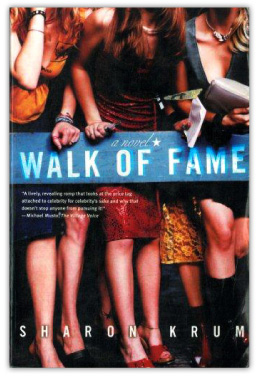
Tom Webster is a dreary nobody; nice enough, but neither a head-turner or a hell-raiser, until he’s given the opportunity to become an uber-celebrity.
The assignment: A major magazine gives Tom 30-days in which to make himself famous, using any, and they mean any, means necessary.
The pay-off: Fame, glory, and $100,000.
When the assignment spins out of control, Tom takes a wild ride on the celebrity machine with a B-list film actress who wants to be working on Shakespeare in the Park rather than her buxom physique, her slimy agent, his best friend, (who happens to have stolen his wife), a boss desperate to capitalize on Tom’s celebrity, and a fame obsessed magazine editor who wants a finished article from Tom above all else. As his level of fame escalates, Tom becomes trapped in his own lies and the cult of celebrity – while everyone around him grabs their fifteen minutes. And then, just when everything seems perfect, Tom will make the decision of his life- turning the tables on the paparazzi, the hangers on, and his scheming counterparts.
REVIEWS Mouse over for full review
- kirkus review
"A sassy, entertaining confection, a sweet zing at the Culture of Celebrity that follows a dour financial writer's self-created launch into the ranks of the beautiful people-and the amusing, if predictable consequences."
- Publishers Weekly
"I am forty-three years old and have failed to make a dent in anyone's life": so says Tom Webster, the narrator of Krum's knowing, cynical debut about the shallowness of fame in America. Texas native Tom is now a New York City business writer whose wife left him a year ago for his best friend, Jake. Though he may be lost, he doesn't think of himself as a loser. He's obsessed with history John Wilkes Booth, in particular and can't manage to stay mad at Jake. Then an extraordinary thing happens to this ordinary man: a glossy magazine offers him $100,000 to write an expos‚ of overnight fame. His mission is to somehow make himself famous in 30 days, after which he must expose himself as just a sham in the tell-all article he's supposed to pen. To that end, Tom enlists the help of B-list actress Alexandra West, who wants to be taken more seriously and who is willing to allow Tom to use her even as she uses him. Soon their Marilyn Monroe-Arthur Miller relationship is in the tabloids and people Tom's intimates, the media, the general public certainly begin to react. As things spin out of control and Tom's surreal new existence encourages him to lie, the question becomes whether or not success will spoil Tom Webster. There's lots of filler here as well as Australianisms on the part of native Australian Krum that someone somewhere should have adjusted Tom often sounds more like Bridget Jones than a Texas transplant. There are no stunning revelations, but the end result is an agreeably smart and amusing story about what most sensible people already know: fame in America is not necessarily based on merit.
- Booklist
Poor Tom Webster leads an everyday life. After his wife leaves him for his best friend, Jake, Tom falls even lower on the boredom scale. When approached by a quasi-intellectual magazine to prove that anyone can become a celebrity, even ordinary forty-something Tom Webster, he signs away his dull (although private) life to mix with the famous. He convinces Alexandra West, a Pamela Anderson-type actress, into meeting publicly. But the arrangement more than satisfies Alexandra, as she is looking to acquire more serious and less scantily clad roles, and soon the public begins to see beyond her looks as she and Tom become an item. Of course, this set-up doesn't work out the way that Tom hopes, the admiration he receives from his coworkers is temporary, and his private life vanishes. But, despite a predictable plot, Krum's sharp, funny dialogue and good characters keep readers wondering what will happen next.
Michelle Kaske
Dracula in Dior
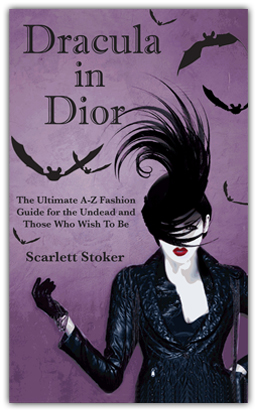
The Ultimate A-Z Fashion Guide for the Undead and Those Who Wish To Be. By Scarlett Stoker
Twilight. True Blood. Dracula. Vampires are hotter than the sun they don’t walk in, and why? Because they have the only two things we humans all want.
Eternal life. Eternal thinness.
Yet when it comes to style, vampires might as well stake themselves. Sure, their books sell millions and their movies pack them in, but too many are still dressing like the Count from Sesame Street. That’s why undead fashionista Scarlett Stoker has created a style guide for vampires (we’re looking at you Bella Swan), because the moment has come for the undead to abandon the clichés and embrace the runway.
A wise human once said that good clothes open all doors. And if you are a vampire, beyond those doors are a lot of necks. The devil wears Prada because it works for him. Shouldn’t Dracula and his minions do their jobs in Dior?
REVIEWS Click on images below to enlarge
